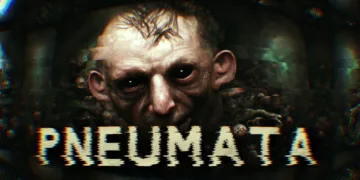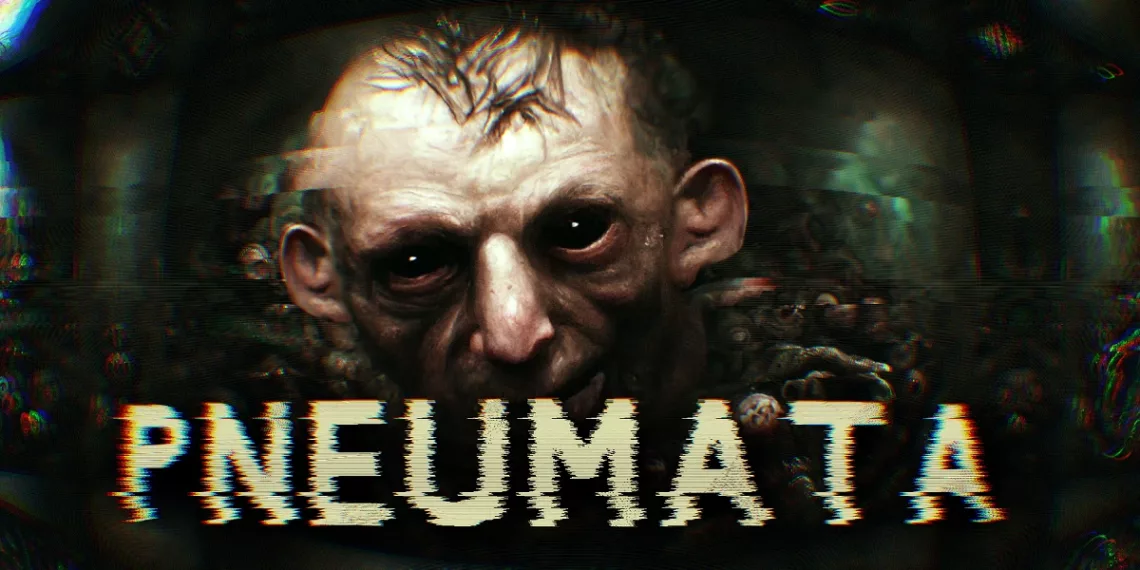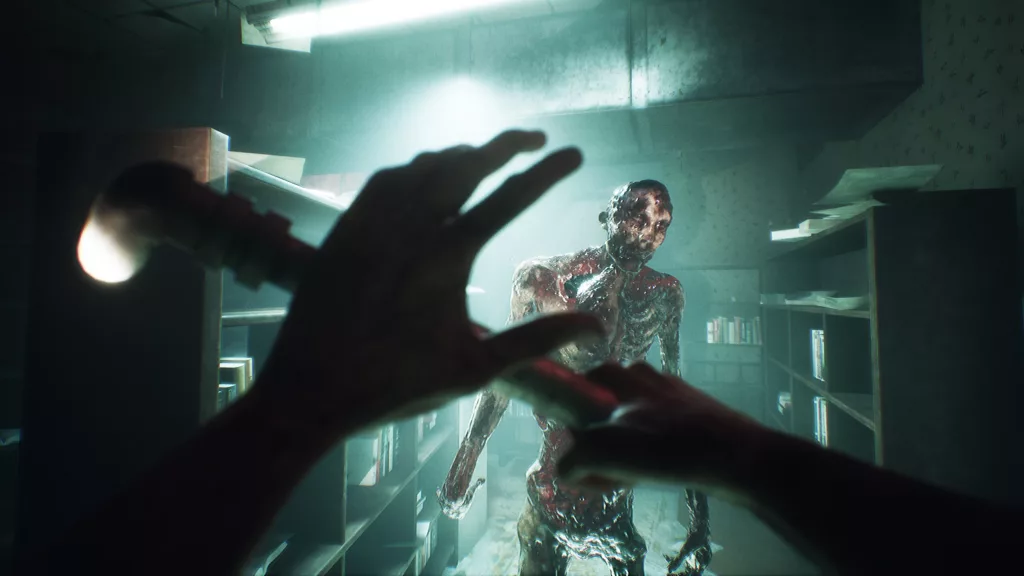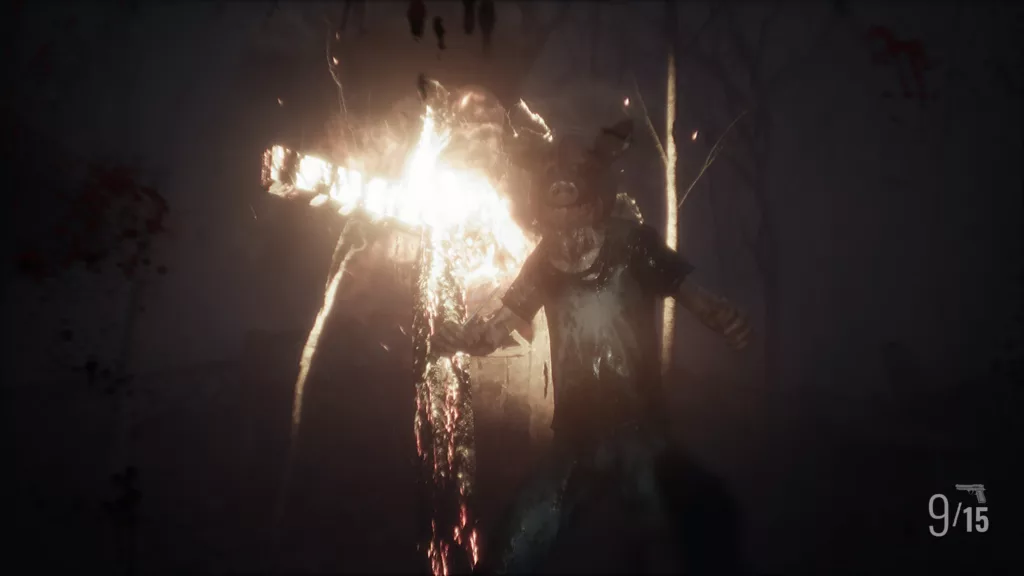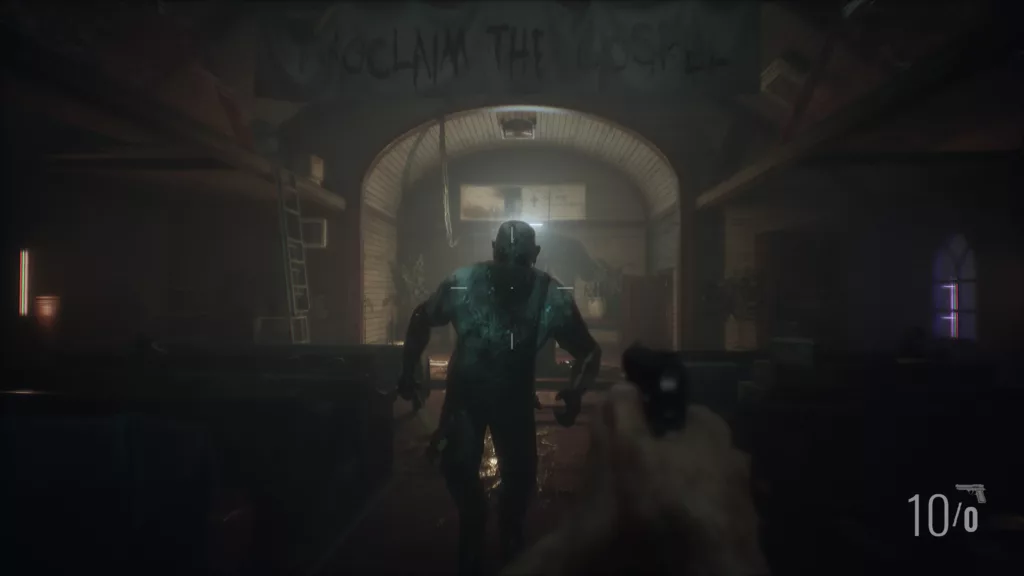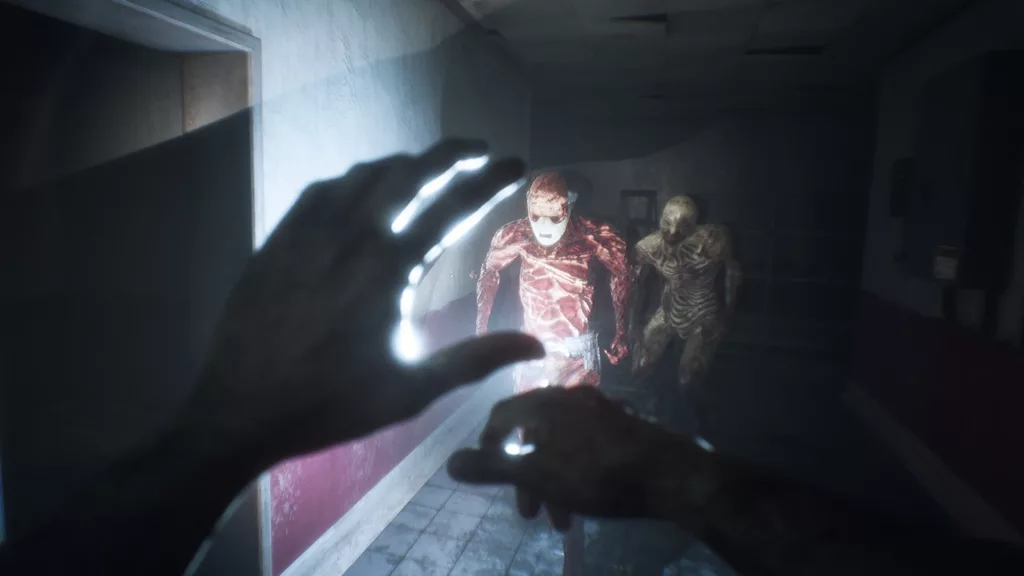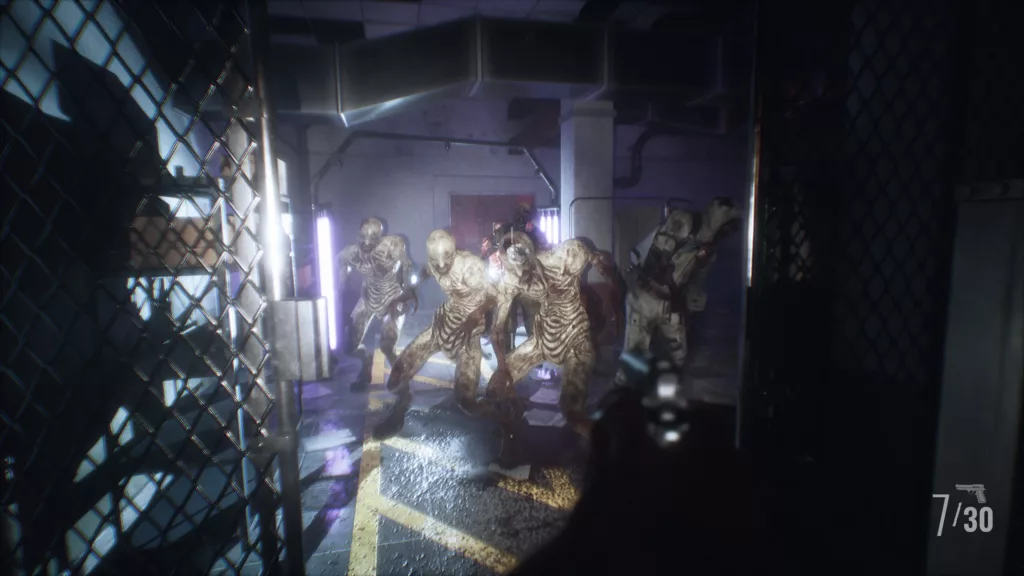Set in a remote town in Missouri, Pneumata offered plenty to entice horror fans with its unsettling atmosphere and Lovecraftian creatures. As a new game from indie studio Deadbolt Interactive, it also promised to take cues from beloved classics like Silent Hill while carving out its own haunting identity. Playing the introductory demo last year, I was gripped by the gloomy backdrops and how effectively the lighting ratcheted up the tension. Everything from the creepy figures glimpsed outside to flickering streetlights drew me into the setting. Deadbolt clearly aimed high with their debut.
Yet after the full release, I found Pneumata pulls you in, only to let you down where it truly matters—the gameplay. Don’t get me wrong, when it comes to visuals, this game delivers. Environments benefit from painstaking details and weather effects that stir the imagination. But beyond the atmospherics, serious issues emerge that weigh down the experience. Navigation proves needlessly frustrating as maps are absent and areas blend together. Objectives lack clear direction, stranding players as they search blindly. Even combating enemies becomes a slog rather than a thrill.
While Pneumata’s haunting shells deserve praise, flaws in how it functions as a game undermine the whole. Interactions feel sluggish, and decisions hamstring suspense. More worrying, constant bugs introduce unfair challenges nowhere near fixed by launch. It’s a shame, as Deadbolt aimed high and clearly invested heart. But relying on a powerful yet perhaps too complex engine backfired, leaving Pneumata an enticing facade with little substance to match. With more time, this developer may thrive. For now, their debut drew me in but left me sorely wanting by the end.
When Pneumata Shines Brightest
From the moment I started up Pneumata, one thing was crystal clear: this game understands atmosphere. As rain poured outside my character’s home that first night, every light and shadow brought the setting to life. Stepping out into rolling thunder and half-lit streets, a sense of unease instantly rose. Deadbolt’s audio-visual mastery shone.
Yet navigating towns and buildings challenged my nerves for very different reasons. While the gloomy aesthetic hooked me in, perpetual dimness made paths tough to follow. I often found myself circling lost, straining to piece locations together through subtle clues. At times, angling the flashlight felt like grasping in the dark rather than illuminating my way forward. This balancing act between immersing visuals and practical play proved delicate.
Soundtracking too told a tale of highs and lows. Quiet creaks in empty rooms delivered tingles down my spine. But when certain effects were triggered on repeat in a loop, suspense transformed into irritation. A jarring clatter startled me more than once when nothing appeared amiss. Still, these inconsistencies didn’t fully diminish Pneumata’s eerie atmosphere—it simply lost some luster at times.
Pleasingly, weather remained a highlight throughout. Storms lit the night with a fury both breathtaking and bone-chilling. Lightning’s fleeting glow against pouring rain created a cinematic quality unlike anything I’ve witnessed in gaming. Even sunnier exteriors felt heavy with a lurking sense of unknown doom. But ultimately, Pneumata shows its strengths shine brightest when visuals and audio blend seamlessly to submerge players in a tangible world of unease.
With smoother balancing of dark depths and player visibility, this indie horror’s atmospheric mastery could have fully dominated from start to finish. But even with room left for improvement, Pneumata proves a master at drawing audiences deep into the thick of its unsettling environs through visual and aural prowess alone. When it hits the right frightening frequency, nothing else comes close.
Pneumata’s Missteps in Mechanics
Jumping into Pneumata, you can sense the soul of a true survival horror. Gathering supplies, managing limited ammo—it taps into all the right systems. And the weight of each shotgun blast or swing from a pipe adds impact I can appreciate. Yet for all the solid frameworks, rough edges in other mechanics bog down the experience.
Combat feels crisp at first. Gunshots and melee hits deliver a meaty punch that immerses you in tense fights. But deeper in, issues creep up that break the flow. Enemies border on comical with their clumsy movements, frequently glitching through world assets. Worse are moments forcing hopeless battles by bad positioning, like herds blocking narrow halls.
Then there’s the objective. Quick puzzles sprinkled about gates and new areas, keeping pace lively enough. But directions often lack clarity, like the vague “shack” hiding a crucial key. Hours passed wandering without clue until stumbling upon the solution feels more frustrating than thrilling.
Exploring likewise starts strong but loses its way. Intricate maps demand navigation, yet providing none pays no heed to what made similar games so compelling. Dashing between familiar halls blurs together after a while with no landmarks in sight. The sense of venturing bravely into the dark fades over time.
Most vexing of all, problems pile on problems in Pneumata’s late acts. Foes spam you relentlessly in confining spaces while checkpoints sit far between. Despite its style, mechanics grow too taxing to feel balanced rather than just broken beatdowns. The lack of polish damages an otherwise solid framework deserving of better execution. With focus on feedback over frustration, Pneumata could’ve shined far brighter.
Getting Lost in Pneumata
I’ll say one thing for Pneumata – its environments show real care. Rooms bursting with furnishings, weathered brick hallways, each holds tiny touches that flesh out the creepy Clover Hill complex. But for all their beauty, environments feel eerily samey after a time.
Wandering the drab corridors trying to find that elusive safe code, nothing stood out. Damp cement blended into damp cement as repetition set in. Without distinctive signs to separate areas, navigation became a chore. I often circled lost, squinting to spot clues in the murk.
Lighting proved no friend either. Dark recesses swallowed my feeble flashlight beam whole, leaving me grasping in gloom. Jumping at shadows didn’t help anxiety as intended when I knew not where to jump toward. Tension morphed to tedium as backtracking remained my main strategy. Maps could have lent perspective to offset this sinking cycle of frustration.
Even outside loosened nerves as little differentiated cramped yards. With no landmarks to navigate by, pathways twisted aimlessly into the night. Pursuing objectives felt like guesswork alone. Objectives needed clear signposting to cut through the bleak sameness weighing exploration.
In the end, environments enthralled more by style than substance. While backdrops fascinated, lack of distinction diluted that allure. Repetition hindered the intense atmosphere Pneumata strived to weave. With bolder differences between areas and lighting to pierce the dark, this setting could have immersed fully instead of leaving me lost in its folds.
Pneumata’s Untapped Narrative Potential
With its disturbing creatures and strange town of Milton, Pneumata sets a scene just begging for an unsettling tale. I can picture the havoc wrought by eldritch forces on this remote community. Yet for all its setup, the story falls short of delivering memorable chills.
Our protagonist remains an enigma, scarcely developing beyond the drive to find his missing love. As the detective, mystery surrounds even his own role in the strange case. But these intriguing hooks go largely unexplored. By midway, his wife Jaime vanished from the script as hastily as she did reality.
Events escalate with bizarre suddenness too. Mutants emerge without cause, then lab experiments expose plot holes rather than clues. Little logic grounds the spiraling paranormal frenzy, lessening its dread. Jump scares take priority over creeping atmospheres and unanswered questions.
To be fair, sculpting a chilling psychodrama remains an immense challenge, even for veteran storytellers. But for an indie project bursting with visual inspiration, this lone developer deserved better editorial support to refine Pneumata’s narrative into its full unsettling potential.
With tighter pacing and fuller character arcs, this tale may have burrowed deeper under my skin. As is, Pneumata shows how far a disturbing setup can carry a game, yet proves great horrors begin with—and live through—their mysterious and memorable tales. With experience, this young studio’s narratives could eclipse even their dazzling scenery.
Bugs Crawl Out of Pneumata
My time with Pneumata offered glimpses of its promising foundations before technical troubles dragged the experience down. From the outset, glitches sprang out at inopportune moments to sour the fun.
Simple errors like textures refusing to load or clipping through scenery rankled, yanking me from the atmosphere. Yet more jarring involved repeated crashes—sometimes mid-boss battle, no less. Reloading only brought praying the bug remained in my previous life.
Even on a high-end rig, stuttering hampered the pleasure of Deadbolt’s intricately lit haunts. Framerates dipped regardless of settings adjusted. Clearly, optimizing for different platforms still eluded the team.
Worst of all were progression-halting glitches stranding progress. Falling through maps with no hope of return shattered over an hour’s gameplay in seconds. Such colossal faults question how thoroughly the game underwent polish.
No doubt, building an immersive 3D world from scratch demands herculean effort. But releasing in such a broken state damages first impressions, no matter the ambition within. Future patchwork hopefully mends these ripped seams to showcase Pneumata’s full scary potential.
Until then, its creepy construction works suffer under a patchwork of bugs. With polish, this troubled technical terror could entice many deeper into its unsettling depths. Here’s hoping tighter quality assurance helps it emerge from the darkness in a stabler state.
Pneumata’s Unrealized Potential
Entering Pneumata, its haunting locales promised so much. From the somber Missouri townscape to tightly crafted building interiors, each setting transported me someplace unsettling. Flashes of atmospheric brilliance showed through an ambitious vision, making me want to praise this troubled terror in full.
Yet no matter its graceful veneer, flawed foundations eventually brought the experience crashing down. Gameplay continually tripped over clunky issues that chipped away at tension like a corroded brick. Bugs likewise damaged the flow more than a freshly-honed slasher. While its souls clearly strove to create something special, flaws felt baked in instead of works-in-progress.
Perhaps this indie team took on technology mightier than experience allowed. Or possibly rushed launch left polish still wanting. But whatever the reasons, problems overwhelm potential here. Leaving Pneumata feeling half-formed despite its dazzling shells.
With development time, this haunted housing project may yet haunt gamers as intended. As it stands, only suspense aficionados welcoming rough edges find solace in Clover Hill’s crumbling walls. But shining underneath, a haunting waits to emerge, given room to breathe. With fixes, this troubled terror could frighten more than it frustrates. For now, though, its unearthly appeal remains sadly confined.
The Review
Pneumata
With its stunning visuals and isolated atmospheric successes, Pneumata tantalizes with its potential. However, issues undermine the experience at every turn. Until polished, only fans willing to look past annoyances will appreciate its appeal. The foundations are there for something haunting, but more work remains before this troubled terror can fully unsettle.
PROS
- Atmospheric visual design and haunting locales
- Intricate environmental details
- Effective lighting and weather systems
- Cool Love craftian lore and premise
CONS
- Clunky, sluggish controls
- Vague objectives and poor map design
- Frustrating bugs, glitches, and crashes
- Shallow, thinly written narrative
- Repetitive level layouts
- Unbalanced combat mechanics
- Lack of difficulty and scarcity pacing
